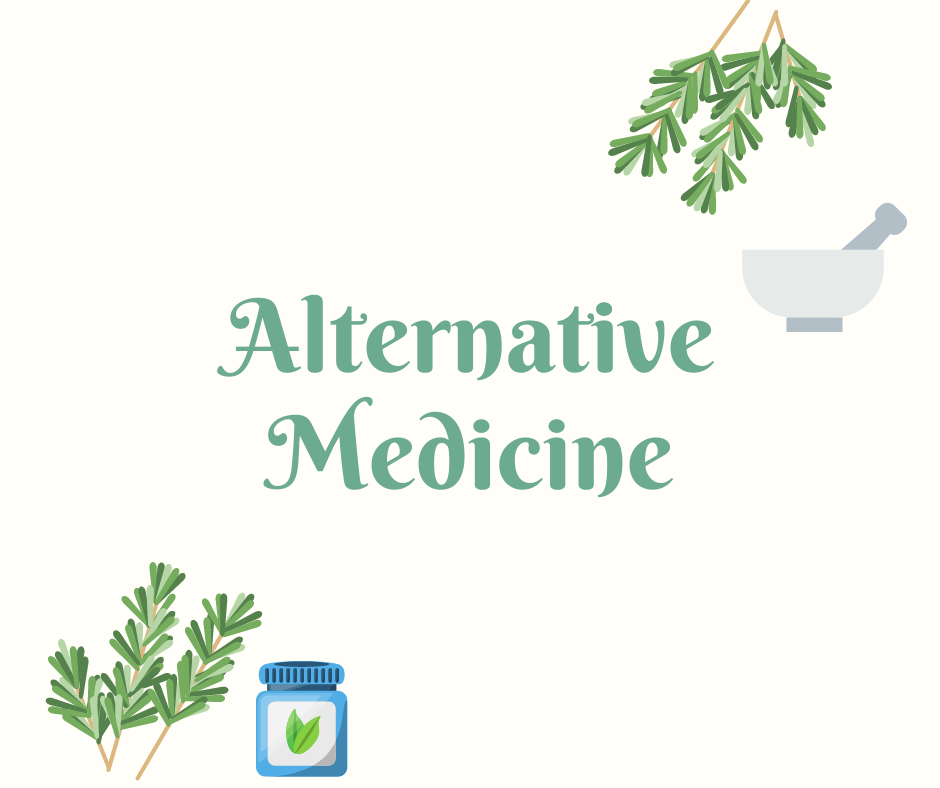Complementary Alternative Medicine: The importance of consulting your GP
16 Apr 2021 4:51 PM
What is Complementary/Alternative Medicine (CAM)?
Used to describe healthcare products and practises that are not considered part of standard medical care, ‘Complementary & Alternative Medicine’ (CAM) ranges from the use of vitamins and supplements, herbal remedies, to physical and psychological treatments such as acupuncture or naturopathy.
The combination of conventional medicine (i.e. standard/evidence based practises encountered when visiting your GP or a specialist) with alternative therapies is very common, and often considered important to improving a patient's overall quality of life. For many patients, a combined strategy allows for a more holistic approach towards their overall health and wellbeing, as well as countering the side effects of traditional medicine, and matching lifestyle to worldview.
Are alternative therapies safe?
Though there is much to be said for the benefits of alternative medicine, they can pose considerable risk and the potential for harm when used incorrectly. Damaging side effects and problematic interactions with conventional medicine are two of the most commonly presenting complications.[1] As herbal remedies and supplements are often perceived as more ‘natural’, the potential for harm can easily go overlooked. In reality, very little is actually known about the safety of herbal medicines compared to synthetic (conventional) drug treatments. Under Australian Law, a complementary medicine is assessed for the safety and quality of its ingredients, but not necessarily for its efficacy (or how well it works).[2]
Accordingly, the potential interactions of alternative medicinal products with prescription medications is a major safety concern. For example, patients prescribed Warfarin, a conventional anticoagulant (blood thinner), are at an increased risk of bleeding when this treatment is combined with herbal supplements such as ginkgo, chamomile, garlic, and cod liver oil.[3] In severe cases, remedies such as St John’s Wort may interact with hormones, antibodies, and chemotherapeutic agents.[4]
How can I safely integrate CAM?
Successful healthcare emphasises a holistic and integrative approach to health and wellbeing. To achieve an effective integration (that is, one that brings conventional and complementary therapies together in coordination), it is very important that you always consult with your GP prior to taking an alternative medicine or embarking on any alternative therapy.
Unfortunately, many patients fail to inform their GP for fear of being judged or misunderstood. On the contrary, your GP is well-equipped to guide you towards the safest, most effective means of integrating alternative therapies. Furthermore, when employing alternative treatments, look for Australian-made products that are marked ‘Listed Aust R’ or ‘Registered Aust R’. Products made in Australia are subject to strict product safety regulations within a licenced laboratory.[5]
If you are concerned about your health, or if you are receiving (or planning to) receive alternative therapy, always seek diagnosis and treatment from your GP in the first instance.
[1]. https://www.betterhealth.vic.gov.au/health/ConditionsAndTreatments/complementary-therapies-safety-and-legal-issues
[2]. Ibid
[3]. https://www.ncbi.nlm.nih.gov/pmc/articles/PMC2410154/
[4]. Ibid
[5]. https://www.betterhealth.vic.gov.au/health/ConditionsAndTreatments/complementary-therapies-safety-and-legal-issues
